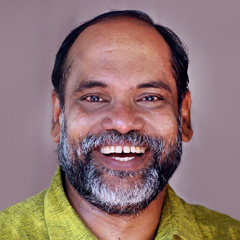Deceased Bollywood star Sushant Singh Rajput could have been driven to death by suicide-thought-inducing drug and anti-depressant ‘Nexito.’
(Sushant Singh was found dead hanging in his Bandra apartment in Mumbai on June 14, 2020).
Sushant Singh’s ‘Nexito’ habit was disclosed by the Citizens Commission on Human Rights (United Kingdom) (CCHR UK) in a letter written to the Central Bureau of Investigation (CBI), which is investigating the case. (The CCHR exposes rights violations in the field of mental health).
The new revelation will, in all likelihood, influence the course of the investigation.
CCHR UK said in its September 1 letter that there had been multiple cases of adults on anti-depressant drugs taking their own lives. Some of these cases were ‘settled’ or admitted to by the drug manufacturers themselves.
In the database of the US Food and Drug Administration (US FDA), the entry for Escitalopram, an anti-depressant sold under the brand names Cipralex and Lexapro (US name for Nexito is Lexapro), states, “Lexapro and other antidepressant medicines may increase suicidal thoughts or actions in some children, teenagers, or young adults within the first few months of treatment or when the dose is changed.”
The CCHR UK said in the letter that psychiatrists have been consistently evading any responsibility in this regard.
“Through their various publications and rhetoric, they have tried to convince people that antidepressants resolve a so-called ‘chemical imbalance’ in the brain. It is used when there’s a tragic death or suicide of someone who was taking the drugs. The ‘chemical imbalance’ theory, however, has never been scientifically proven,” it said.
The investigation could find out if the actor was informed by the psychiatrist concerned of the possible risk associated with this type of drug.
The letter was addressed to Gagandeep Gambhir, an Indian Police Service (IPS) officer of the 2004 batch, will be a part of the Central Bureau of Investigation (CBI) team investigating Sushant's death.
CCHR UK executive director Brian Daniels, confirming that the agency had written the letter, said they were hopeful that the CBI would look into the possible drug-suicide angle. The CCHR UK said the CBI had not responded to the letter.

“I have been an investigator for nearly 21 years. Over that time, I have gathered information relating to a link between prescribed antidepressant drugs and the consequent appearance of suicidal thoughts and behaviour. Suicides of those on prescribed psychiatric drugs happen with such frequency that any link is difficult to dismiss,” he said over telephone from the UK.
The UK drug regulator, the Medicines and Healthcare Products Regulatory Agency (MHRA), has prepared information under the heading ‘Antidepressants and suicidal thoughts and behaviour.’ As part of that information, a report on the ‘risk of suicidal thoughts and behaviour with antidepressants’ was published by the European Pharmacovigilance Working Party, he said. The report summarizes the data for the risk, assessed both within Europe and by the US FDA, he added. According to the drug regulators, “If you are depressed and/or have anxiety disorders, you can sometimes have thoughts of harming or killing yourself. These may be increased when first starting antidepressants…” he said in the letter.
It was reported in Indian media that a few days before his death, Sushant’s sister Priyanka Singh asked him to take ‘Librium for a week, Nexito every day and Lonazep for whenever there is anxiety attack’.
According to the FDA, pooled analyses of short-term placebo-controlled trials of antidepressant drugs (SSRIs and others) showed that these drugs increased the risk of suicidal thinking and behaviour (suicidality) in children, adolescents, and young adults (ages 18-24) with major depressive disorder (MDD) and other psychiatric disorders.
According to Drugwatch, a consumer advocacy organization headquartered in Orlando, Florida (US), Forest Laboratories, the manufacturers of anti-depressants Celexa and Lexapro had settled 32 lawsuits and agreed to millions of dollars in settlements till 2013, following the allegations that the antidepressants caused birth defects and led to suicidal behaviour.
The Indian scenario too is not that encouraging. In most cases, people who take antidepressants take the extreme step due to akathisia, a state of acute physical and psychological agitation, causing a feeling of restlessness and an urgent need to move. The word has its origin in the Greek word ‘akathemi’ meaning ‘never sit down.’ According to medical experts, akathisia is a side-effect of older, first-generation antipsychotic drugs used to treat mental health conditions like bipolar disorder and schizophrenia, but it can also occur with newer antipsychotics as well.
That is why the US FDA warns that ‘all patients being treated with antidepressants for any indication should be monitored appropriately and observed closely for clinical worsening, suicidality, and unusual changes in behaviour, especially during the initial few months of a course of drug therapy, or at times of dose change.’
But such a possibility is next to impossible among adults and the Bollywood actor’s case could not be one of antidepressant-induced suicide, said Dr Ramash K, who is a Kozhikode-based psychiatrist who runs a clinic in Kozhikode Medical College.
“Though it was said earlier that antidepressants might cause suicidality among children, even that is not medically substantiated and in the case of adults there is no such possibility,” he said, adding that some anti-psychiatry groups are putting the blame on antidepressants. Depression has to be treated using medicine and hence there is no point in putting the blame on antidepressants, because such allegations are part of some other game plan, he said.
At the same time, it should be probed if the Bollywood actor got proper psychiatric support and if he took the medication under medical supervision, said Dr Ramash, who added that self-medication can be disastrous too.
(P Sudhakaran is an independent journalist based in Kannur)

















